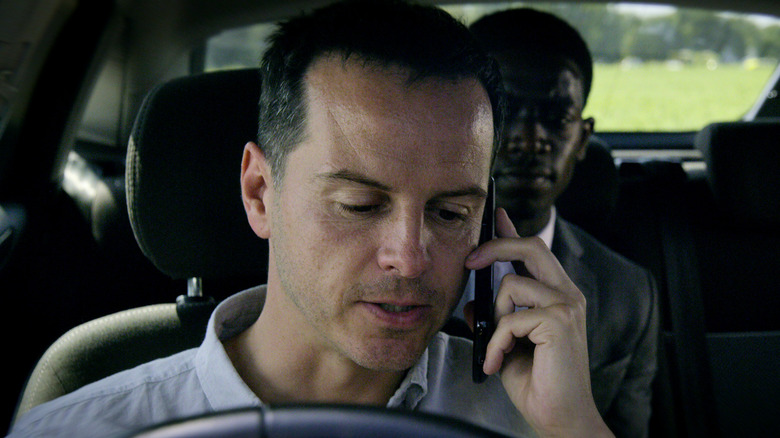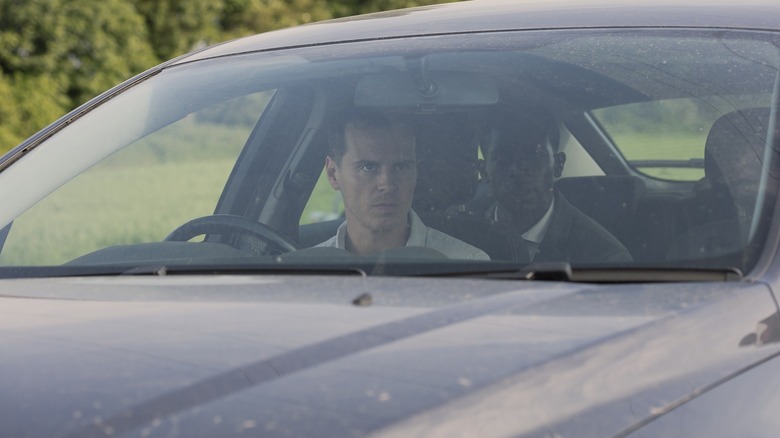Black Mirror: Charlie Brooker Based Smithereens On His Own Real-Life Experiences
Anyone who watches "Black Mirror" will recognize immediately how many of the ideas in the show are based on the evolution of existing technologies and where they might inevitably take civilization. From the inspiration of "Shut Up and Dance" mirroring real-life internet vigilantes to how "Nosedive" imagines the ways that social credit systems might change society, many episodes have deliberately skewed toward just a small notch up from our own reality.
However, according to "Black Mirror" creator Charlie Brooker, there's one episode of the series, "Smithereens," that skews especially close to a personal experience he once had. As the writer-producer explained to The Independent, he once had a very unsettling takeaway from a lift he'd accepted through a ride-sharing service.
"The story came from two things," Brooker recalled. "The first was regarding the trust you put in someone when you get in the back of an Uber. I had an experience where I got in the back of the car, and I was on my phone. Suddenly, I was wondering where I was," the "Black Mirror" creator explained.
Brooker realized you really have no idea whose car you're in
According to Charlie Brooker, the situation only got more unsettling from this point. "The guy got out and was rummaging through stuff in the boot. I was wondering, 'What is going on?'" he recalled. "It turns out he was just getting a bottle of water out and didn't want to interrupt me."
Season 5, Episode 2 ("Smithereens") follows a man named Chris (Andrew Scott) who poses as an Uber driver in order to pick up Jaden (Damson Idris), a target who works for a social media company, and hold him hostage. As for his own experience, though Brooker's moment of panic was ultimately unnecessary, the idea of getting into a stranger's car being a dangerous prospect is one that goes back long to before the modern advancements of ride-sharing services.
After all, plenty of drivers, regular and professional alike, have used the offer of giving someone a ride as an excuse to get them into a dangerous or compromising position. Still, the fact that we're several steps removed from the process with Uber or Lyft does add an extra layer of paranoia that perfectly fits the tone of a "Black Mirror" episode. "The phone is meant to keep you there," producer and co-showrunner Annabel Jones explained. "It's very interesting how subtly and incrementally the ingredients have changed."

